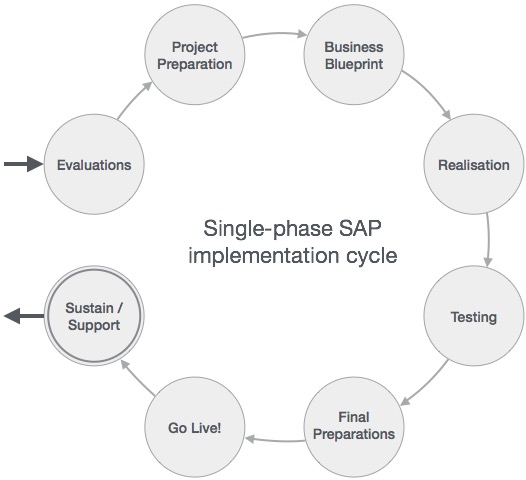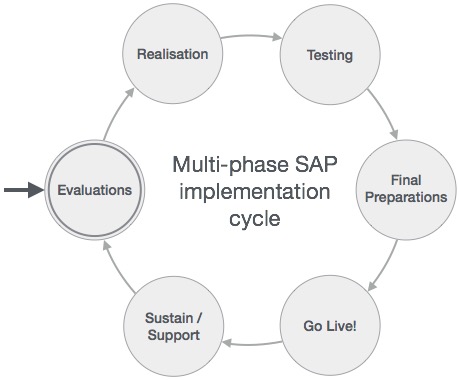In this chapter, we will understand the different phases of a SAP Project Lifecycle. A SAP project lifecycle consists of various stages, starting from evaluation to the project’s subsequent support.
SAP Project Lifecycle

Stages of SAP Project Lifecycle
A typical SAP project undergoes the following stages in its lifecycle −
Evaluation
Evaluation may be a decision to choose between different software vendors or selection of products from a single vendor.
Project Preparation
Since a SAP implementation intends to map the organization processes to the ones defined by SAP, the implementation needs to have on-board people with complete knowledge of the organization business processes. The project preparation phase, amongst other things, aims to identify this team.
Business Blueprint
A business blueprint includes what modules of a SAP product would be used and the mapping of the existing business processes to the processes provided by SAP.
Realization
The actual work of customizing the SAP software to be in sync with the organizations business processes is done in this phase. It includes customization of existing SAP package and solution along with the development of new objects based on requirement.
Testing
The changes made in the realization phase need to be tested in isolation as well as in a consolidated manner using real-time data. This is done in the testing phase.
Final Preparation
The production system is prepared using the changes from the realization and testing phases. Certain activities need to be done directly in the production system as well. These activities take place during the final preparation phase.
Go-live
In this stage, the final product is released to the end-users. The go-live may be done in a Big Bang (all modules at one go) or in a phase-by-phase manner.
Sustain / Support
The project now moves into the “sustain and support” phase where the end-users’ issues would be resolved and ongoing maintenance of the system would be taken care of.
SAP Multiphase Implementation

